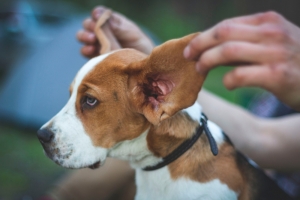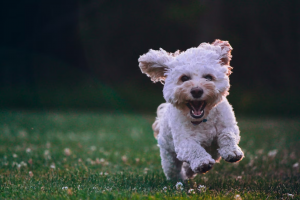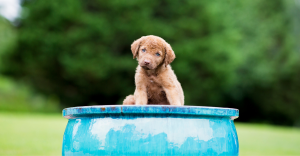Bringing a dog into the home for the first time is an exciting experience, but choosing the right breed requires careful consideration. Different breeds have unique personalities, energy levels, and care requirements that impact how well they fit into a household. First-time dog owners must assess their lifestyle, living space, and ability to provide proper training and care before selecting a breed that suits their needs. A well-matched dog enhances companionship, while an incompatible choice may lead to frustration and unexpected challenges.
Factors such as size, temperament, grooming needs, and exercise requirements all play a role in determining which breed is the best fit. Some dogs require extensive training and daily activity, while others thrive in low-maintenance environments. Understanding these differences helps new pet owners avoid common mistakes and ensures a smooth transition into responsible dog ownership. Taking the time to research breeds and consider long-term commitments leads to a rewarding relationship between owner and pet.
Understanding Your Lifestyle Before Choosing a Dog
Selecting the right dog breed starts with evaluating daily routines, home environment, and activity levels. Some breeds require extensive exercise and training, while others thrive in low-maintenance households. Matching a dog's temperament to an owner's lifestyle helps create a harmonious relationship and reduces the risk of behavioral issues.
Individuals with busy schedules may prefer independent and easygoing breeds like Greyhounds or Basset Hounds, which require minimal attention. Active families who enjoy outdoor activities may find Labrador Retrievers or Australian Shepherds better suited for their energy levels. Understanding these factors ensures a first-time dog owner selects a companion that fits seamlessly into their life.
Low-Maintenance Breeds for Beginners
First-time dog owners often benefit from breeds that require minimal grooming, training, and exercise. Breeds like the Cavalier King Charles Spaniel, French Bulldog, and Shih Tzu are known for their affectionate nature and adaptability to various living conditions. These dogs thrive in both small apartments and larger homes, making them excellent choices for novice owners.
Low-maintenance breeds also have fewer medical concerns and lower energy levels, making them easier to care for in the long run. Choosing a dog with a gentle temperament and predictable behavior reduces stress for both the owner and the pet, ensuring a positive experience in pet ownership.
High-Energy Breeds for Active Owners
Some first-time owners lead active lifestyles and prefer a dog that can keep up with outdoor adventures. Breeds like Border Collies, Australian Shepherds, and Jack Russell Terriers require daily exercise and mental stimulation. Without proper engagement, these breeds may develop destructive behaviors or excessive energy levels.
High-energy dogs excel in homes with spacious yards, frequent hiking trips, or access to dog parks. They enjoy interactive play, agility training, and obedience exercises. Owners who commit to regular physical activity and structured training find these breeds to be loyal and intelligent companions.
Allergy-Friendly Dog Breeds for Sensitive Owners
For individuals prone to allergies, hypoallergenic breeds offer an excellent solution. Breeds like Poodles, Portuguese Water Dogs, and Maltese produce lower amounts of allergens, reducing the likelihood of allergic reactions. These dogs require regular grooming to maintain coat health but shed significantly less than other breeds.
Choosing a hypoallergenic dog ensures a comfortable living environment for allergy sufferers. Owners should still maintain cleanliness through frequent vacuuming and air filtration to further minimize allergen buildup in the home. Consulting with breeders or rescue organizations can help identify breeds best suited for allergy-sensitive individuals.
Size Matters: Small, Medium, or Large Breeds
The size of a dog plays a significant role in compatibility with a new owner's lifestyle. Small breeds, such as Chihuahuas and Dachshunds, require less space and are easier to transport, making them ideal for apartment living. Medium-sized breeds, like Beagles and Cocker Spaniels, balance energy and manageability, providing companionship without excessive space requirements.
Large breeds, including Golden Retrievers and Great Danes, require more space, food, and exercise. While they provide strong companionship and protective instincts, they may not be suitable for small living spaces or owners with limited mobility. Selecting the right size ensures a comfortable and practical pet-owner relationship.
The Importance of Temperament and Trainability
Each breed has distinct personality traits that influence compatibility with first-time owners. Some breeds, like Golden Retrievers and Labrador Retrievers, are naturally friendly and eager to please, making training easier. Others, such as Huskies and Dalmatians, exhibit stubborn tendencies and require more patience in training. Choosing a breed with a temperament that aligns with an owner's experience and commitment level ensures a smoother transition into dog ownership.
Owners should consider their willingness to invest time in training and socialization. Highly trainable breeds respond well to obedience lessons and commands, making them ideal for new pet owners looking for a manageable learning experience. However, failure to properly train and control a dog can lead to behavioral issues, which may result in accidents or injuries. In situations where a dog causes harm, navigating a personal injury claim in Boerne ensures that legal responsibilities are properly addressed. Proactive training, early socialization, and responsible pet ownership help prevent incidents while fostering a positive relationship between the dog and its owner.
Considering the Long-Term Commitment to Dog Ownership
Bringing a dog into a home is a long-term commitment that requires time, patience, and financial responsibility. Veterinary care, food, grooming, and training expenses add up over the years. First-time owners must ensure they have the resources and stability to provide for their pet's needs throughout its lifetime.
Failing to consider long-term responsibilities may lead to rehoming or abandonment, causing distress for both the owner and the dog. Responsible pet ownership includes regular veterinary visits, proper nutrition, and adequate exercise to maintain a happy and healthy companion.
Finding the Perfect Companion for a Lifetime
Choosing the right dog breed as a first-time owner is about more than just appearance—it requires understanding energy levels, temperament, and long-term responsibilities. A well-matched pet brings companionship and joy, while an ill-suited choice may lead to unnecessary stress for both the owner and the dog. Taking the time to research different breeds, consider personal lifestyle factors, and prepare for training and care ensures a positive experience in pet ownership.
Owning a dog is a long-term commitment that comes with responsibilities, including proper care, training, and medical attention. Ensuring a good fit from the start helps prevent behavioral issues and fosters a strong bond between pet and owner. With careful planning and the right mindset, first-time dog owners can enjoy the rewarding experience of welcoming a new four-legged friend into their lives.






